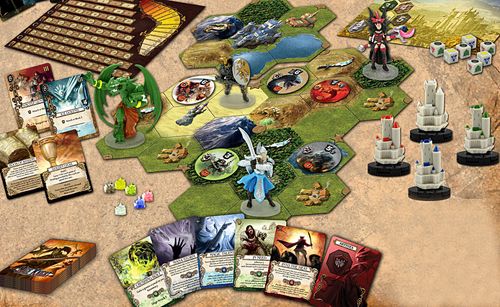
On top of everything, that hack Robert Wintermute killed Venser…
A quick note before we begin: the movie I’ve been asked to review isn’t available yet. It should be later in the day, but for now we’re going to swap the review with Tabletalk for this week. Okay? Okay.
Magic… it’s time we talked.
I’ve been playing you for years. Decades, even. And there is a lot that I like about you. Your planes are rich with game and story potential. You show interesting design choices at every turn. Memories of tournaments, drafts, and throwdowns with family are evocative of good or even excellent times, and I will never forget them.
But, to be honest, I’ve been seeing other card games.
I don’t want you to feel like you’ve done anything wrong. I don’t think it’s your fault. I am, in all honesty, just a little tired of some of the things that throw me off when it comes to you. I certainly don’t agree with all of your design choices, and I know that no cycle of cards lasts forever outside of Legacy. You may see me coming back to a local gaming store in the future. The big problem, though, is the irritation I have with variance.
I like games that are different every time you play them. They add variety and make me want to play more. The thing is, though, that a deck of Magic has a level of variance that tends to be rather high. While this can be mitigated with good deck construction choices, the bottom line is that the resources you need to play the game – your land – are dispensed to you entirely at random. You could have everything necessary in your hand to make a clutch play or escape a tight situation, but you can’t do anything because your land has not deigned to show up yet. It sucks for me when it happens, and it sucks for my opponent, too. When my opponent gets screwed on their mana, I feel bad on their behalf, since it doesn’t feel like we’re playing the game on equal terms, and that’s not fun for anybody who wants to have fun playing. I mean, if you care only about winning, then yes, you want your opponent to have every disadvantage possible, but that to me is not very sporting. Call me old-fashioned.
Some people like this. They like the extra challenge it presents, and the fact that games are not predictable. That’s fine. I can understand that. I personally feel, however, that games like Hearthstone and Netrunner are spoiling me, since my resources are not tied to random chance.
We’ll talk more about that next week. For now… I don’t hate you, Magic, but to be honest, I don’t think you’re my favorite anymore. It’s not you, it’s me.






